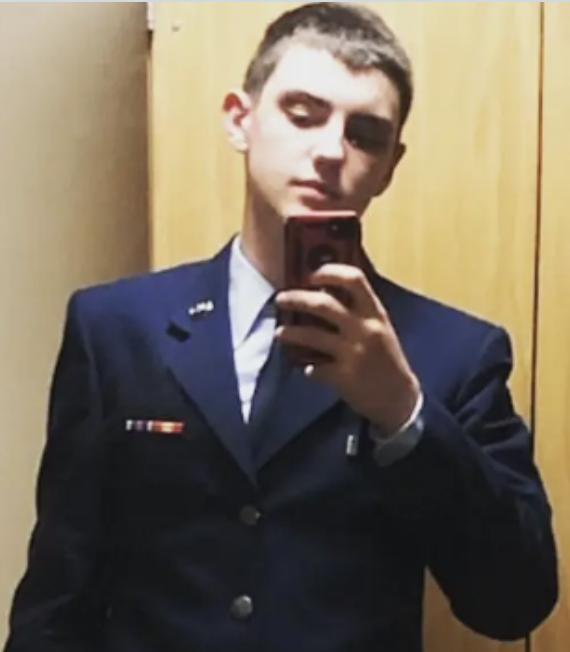The leader of a small online gaming chat group where a trove of classified U.S. intelligence documents leaked over the last few months is a 21-year-old member of the intelligence wing of the Massachusetts Air National Guard, according to interviews and documents reviewed by The New York Times.
The national guardsman, whose name is Jack Teixeira, oversaw a private online group named Thug Shaker Central, where about 20 to 30 people, mostly young men and teenagers, came together over a shared love of guns, racist online memes and video games.
Two U.S. officials confirmed that investigators want to talk to Airman Teixeira about the leak of the government documents to the private online group. One official said Airman Teixeira might have information relevant to the investigation. NYTimes. (Behind a paywall)
Teixeira appears to be the source of the leak of a trove of sensitive Pentagon documents which defense officials say contain “sensitive and highly-classified material.” They have been subject of widespread reporting over the past days, despite the White House urging media not to publish their contents. Authorities believe they have tracked down and arrested the culprit.
Jack Texeira, the Ukraine Whistleblower, exposed Biden illegally putting US troops in Ukraine w/o Congressional authorization per the War Powers Resolution of 1973, an impeachable offense
— DC_Draino (@DC_Draino) April 13, 2023
His patriotism may end up stopping WW3
He doesn’t deserve jail time
He deserves an award
The highly sensitive documents appear to have been shared with a group of acquaintances searching for companionship on Discord, a chat app popular with gamers. The initial poster, whom some call “OG,” said he spent hours transcribing classified documents from his job on a “military base” to share with the group, a Discord group member told The Washington Post. Here he is getting arrested.
Video: The arrest of the alleged leaker.
— Lord Bebo (@MyLordBebo) April 13, 2023
-> The circus they make for one unarmed dude seems like a show. https://t.co/h9NhcPLk5g pic.twitter.com/vilteMCd1p
Several details are noteworthy in the leaked documents. They reveal Ukraine’s military weaknesses, including vulnerabilities in air defense and potential ammunition shortages, as well as the likelihood of limited territorial gains in their planned spring counteroffensive. The documents also describe a near-miss between a Russian fighter jet and a British surveillance plane off the coast of Crimea.
The leaks suggest that the U.S. intelligence community has infiltrated the Russian military, enabling them to warn Ukraine of impending attacks. They also contain discussions of internal planning by Russia’s military intelligence agency, the GRU, and the private military contractor, the Wagner Group. The documents include information about new surveillance technology, such as the LAPIS time-series video, which some U.S. officials fear could be compromised by Russia.
The leaks also mention Wagner’s attempt to procure weapons and equipment from Turkey for their efforts in Mali and Ukraine. One document details conversations between Egyptian President Abdel Fatah El-Sisi and senior military officials about plans to supply Russia with artillery rounds and gunpowder.
In addition, the leaks reveal that South Korea’s National Security Council was hesitant to fulfill a U.S. request for artillery ammunition to be sent to Ukraine. They also suggest that Mossad officials and Israeli citizens protested against the new Israeli government’s proposed judicial reforms, and that Hungarian Prime Minister Viktor Orban escalated anti-American rhetoric in a political strategy session.
A pic of Jack Teixeira he posted on social media – released by the NYT pic.twitter.com/IGZGUnN2Wb
— Michael A. Horowitz (@michaelh992) April 13, 2023

